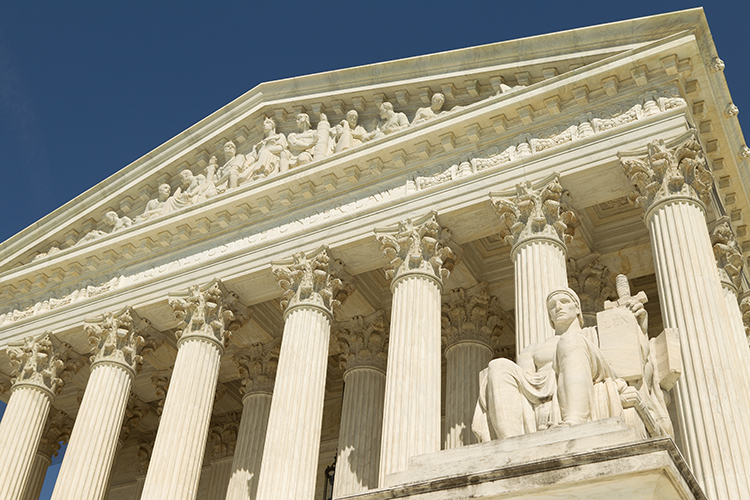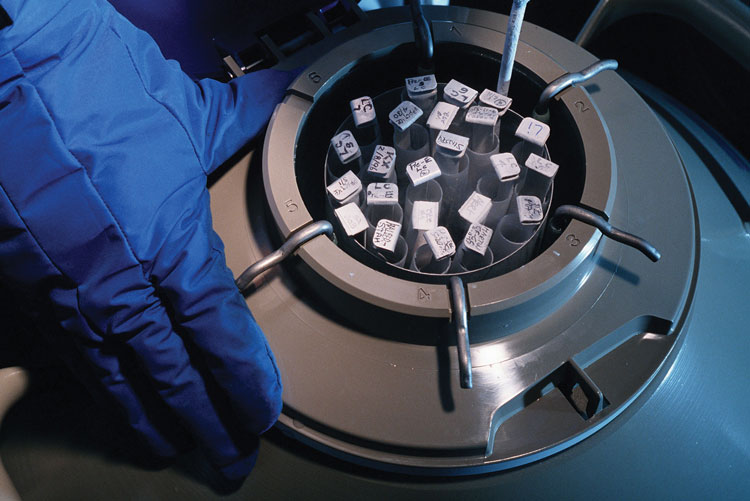New true-crime docuseries sheds light on how polygraph tests are misused
Recently, my wife mentioned watching American Nightmare, a new Netflix true-crime documentary. Numerous other folks told me that I had to watch and report. Couple that with the program having 21.4 million views shortly after it was released, I figured that it was a three-part documentary worth digging into. Warning: Spoilers ahead.
It tells the tale of a young couple who suffered a 2015 break-in while they slept. According to the then-boyfriend and now-husband, Aaron Quinn, an assailant surprised him and his now-wife, Denise Huskins. She was kidnapped, and Quinn was left alone in the home, drugged with a sedative, zip-tied and wearing blacked-out swimming goggles.
When he woke, Quinn contacted his brother, an FBI agent, who instructed him to call law enforcement immediately. They brought in Quinn for an interview. And a polygraph test. In my line of business, polygraph tests offered by law enforcement are rarely what they appear to be.
One of American Nightmare’s main themes is believability—such as prosecutors believing law enforcement’s position and police officers not believing what was said during a polygraph test. None of the initial law enforcement officers gave Quinn much credit when he relayed what had happened to him and Huskins.
Admittedly, Quinn’s account is tough to swallow. It is full of meticulous details, and my experience is that when someone adds extravagant details to their story, they’re usually trying way too hard to sell a lie.
Polygraphs and tunnel vision
I can’t tell you the number of times that a client either requested a polygraph from law enforcement or was offered one before retaining my services. It happens more often than most know because we never really hear about polygraphs during criminal court cases. After all, think about the legal posture of the polygraph setting. The tests are usually given during the initial investigation, so prosecutors have already seen the results before deciding to bring formal charges.
First off, a polygraph test is not mandatory, and it’s often scheduled for some time separate and distinct from the initial interrogation. The scheduling accomplishes two essential aspects for the prosecution. Because it’s merely “offered,” the prosecution can argue that the questioning is a consensual encounter as opposed to a criminal interrogation. And because it happens at a different time and potentially on a different date than the initial interrogation, there is more room to argue the suspect was “free to leave” and not in custody.
Law enforcement often use polygraphs as another avenue to interrogate the suspect indirectly. I’ve seen polygraph examiners bust the denial, with investigator tactics such as calling issue to easy answers, even when they are true. The motive is sometimes to make the suspect nervous, which could lead to them saying something incriminating or stop denying the accusation.
At the end of the day, they aren’t trying to get to the truth. They are trying to get to the arrest.
Lie-detector tests in court
Most are unfamiliar with how often polygraphs are misused and abused in our criminal justice system because they’re the dirty little secret that never makes it to the public. Why is that? Because in most jurisdictions, courts have long held that polygraph evidence is inadmissible, as the test hasn’t gained acceptance among scientists. The first case, Frye v. United States, was decided in 1923 by the District of Columbia Court of Appeals.
In 1993, Frye was abandoned by the majority of courts, following the landmark opinion in Daubert v. Merrell Dow Pharmaceuticals Inc.. In Daubert, the U.S. Supreme Court determined that the Frye test was superseded by the Federal Rules of Evidence.
Also, rather than focusing on general acceptance, Daubert instructs judges to consider whether a scientific theory or a technique could be tested, whether it had been subject to peer review, and what the known error rate was, among other factors.
As was the case with Frye, polygraphs continued to fall short of the Daubert standard in the eyes of most courts. Some jurisdictions allowed the introduction of polygraph results and related testimony in limited situations.
The Supreme Court offered a bit more guidance in 1998, when it decided the case of United States v. Scheffer. It held that Military Rule of Evidence 707, which makes polygraph evidence inadmissible in court martial proceedings, does not unconstitutionally infringe on an accused person’s right to present a total and complete defense.
Regardless, state and federal courts continue to be highly polarized regarding the reliability and subsequent admissibility of polygraph evidence.
What’s good for the goose is good for the gander
The issue comes back to the misuse and abuse of polygraphs by law enforcement. It’s common for investigators and polygraphers to tell suspects that they’ve failed a polygraph when, in truth, they did not, or at worst, the results were inconclusive.
That allegation can wreck someone’s psyche. If they are telling the truth about their innocence only to be told that the “lie detector” doesn’t believe them, it’s normal for a suspect to start second-guessing the reality of the situation.
They may start wondering whether they’re incorrect in their beliefs. After all, the test that detects lies says they are lying, right? Even if they know that they’re telling the truth, law enforcement’s insistence that they aren’t can pin an accused person into a corner.
I’ve asked clients why they give up the ghost and admit something that they didn’t do in the face of unfavorable results. I usually receive an answer somewhat similar to: “If the polygraph doesn’t believe me, then the cops aren’t going to either, and neither will a jury, most likely.”
In those circumstances, I’ll usually put the client through a polygraph with an independent examiner in my office. Sometimes they fail that test too, but other times, they pass with flying colors. When they do pass, it’s common for those same prosecutors and detectives who use polygraphs to break a suspect’s will to have no interest in reviewing results that don’t favor their theory of a case.
In the end, they argue that polygraphs aren’t reliable and are too easily manipulated. You don’t say, huh? Talk about the pot calling the kettle black.
Adam Banner
Adam R. Banner is the founder and lead attorney of the Oklahoma Legal Group, a criminal defense law firm in Oklahoma City. His practice focuses solely on state and federal criminal defense. He represents the accused against allegations of sex crimes, violent crimes, drug crimes and white-collar crimes.
The study of law isn’t for everyone, yet its practice and procedure seems to permeate pop culture at an increasing rate. This column is about the intersection of law and pop culture in an attempt to separate the real from the ridiculous.
This column reflects the opinions of the author and not necessarily the views of the ABA Journal—or the American Bar Association.





